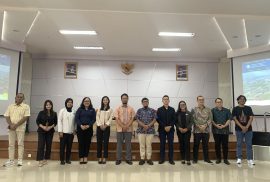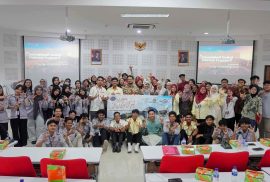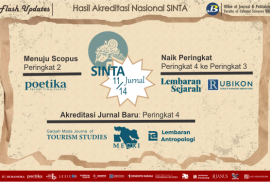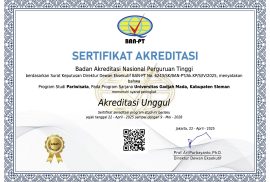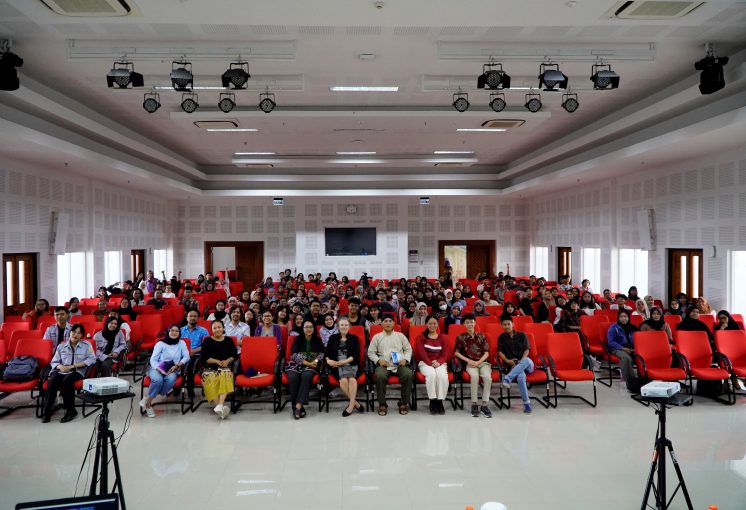
Bulaksumur, Wednesday, May 8, 2024. The Tourism Study Program in collaboration with Fulbright Scholarship held a public lecture. The public lecture was delivered by Prof. Dr. Kathleen Adams, Ph.D. from Loyola University, Chicago and Prof. Dr. Pujo Semedi Hargo Yuwono, M.A. Professor of Anthropology, Gadjah Mada University, and Dr. Wiwik Sushartami, M.A. Chair of the Tourism Study Program as moderator. Located in Soegondo Auditorium, this public lecture discussed critical perspectives in cultural tourism using case studies in the Pacific Rim region. This public lecture is also a form of support and collaboration between academics across countries and disciplines. Especially in realizing a climate of tourism studies that is more critical and has a humanist perspective.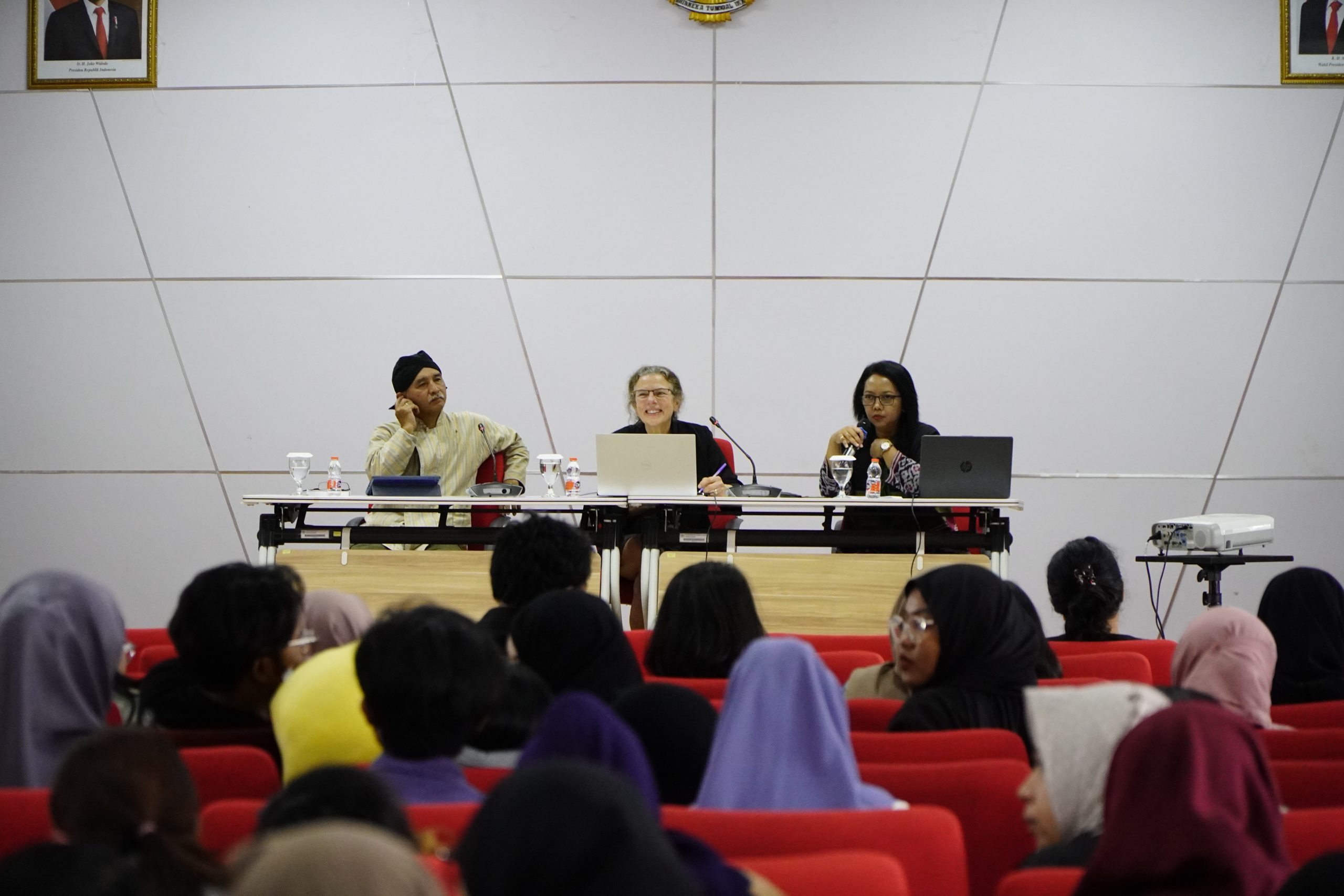
Prof. Kathleen began her presentation by explaining why critical studies of cultural tourism are very important to study. According to her, this is because the critical study of tourism is closely related to several issues that are very urgent today. According to her, this is inseparable from the character of tourism which is an industry as well as a field of study, so there are perspectives on tourism in theory and tourism in practice. Therefore, according to him, a “red thread” is needed to connect the two different tourism perspectives.
“The goal is clear, to bring together academics, tourism practitioners and professionals, community members, travelers, and travel writers to critically address contemporary issues in tourism studies,” she said.
Furthermore, Prof. Kathleen said that in this public lecture she will focus on looking at critical tourism approaches in cultural tourism. Regarding cultural tourism, she explained that cultural tourism includes travel to study, experience, or consume cultural attractions or products. He added that cultural tourism includes historical and cultural heritage, not only limited to material things, but also intangible things. But more than that, according to her, cultural tourism today also needs to be seen as a way to protect nature, promote justice, and decolonize efforts. Furthermore, according to Kathleen, cultural tourism also has consequences for identities, such as gender, religion, ethnicity, nationality, or other identities.
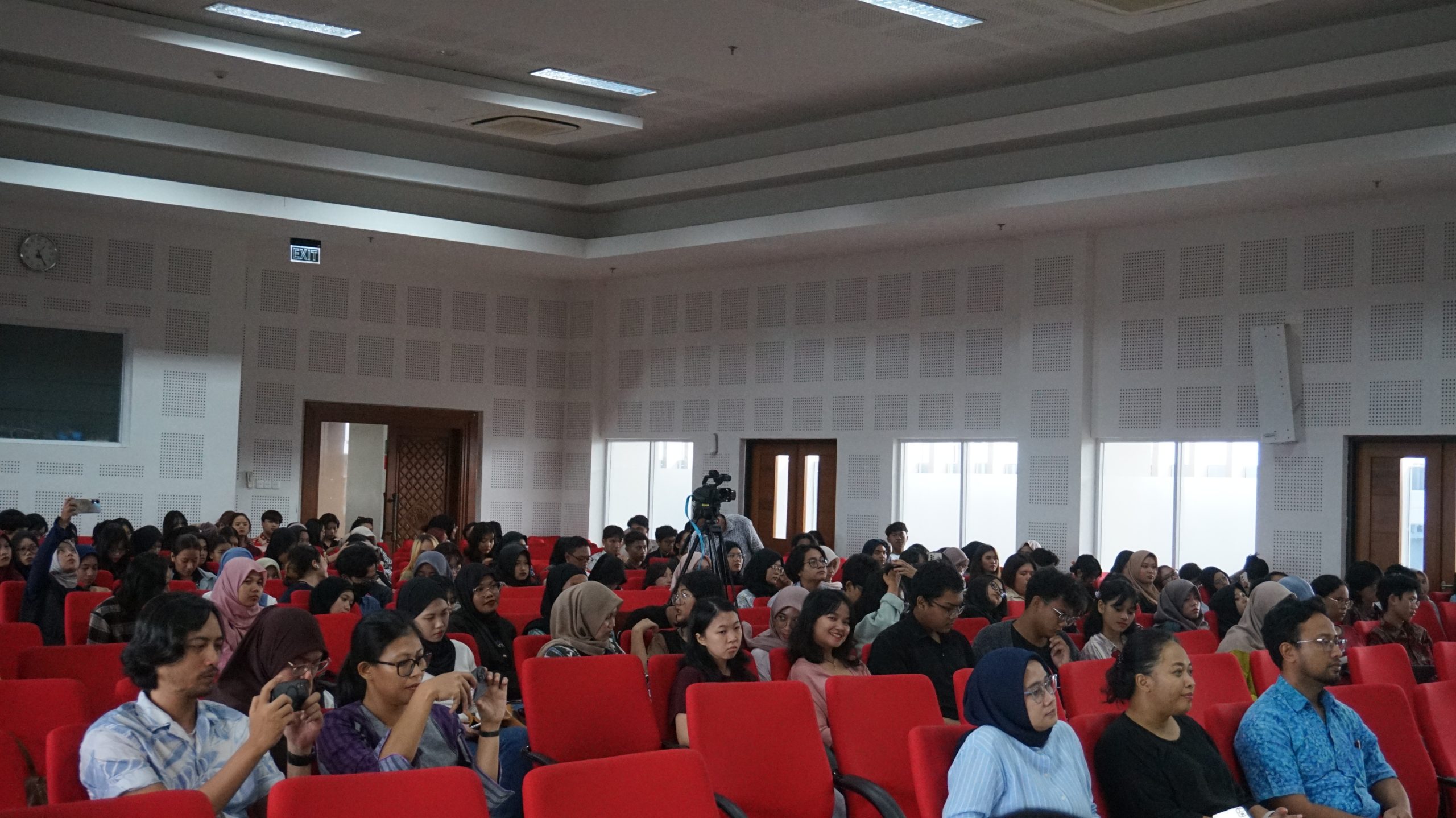 “Studying cultural tourism with a critical perspective offers opportunities to develop insights into how to maintain connectivity between aspects of tourism, something we desperately need today.” she said.
“Studying cultural tourism with a critical perspective offers opportunities to develop insights into how to maintain connectivity between aspects of tourism, something we desperately need today.” she said.
Comparable to Prof. Kathleen, Prof. Pujo also stated the importance of a critical perspective in tourism studies, especially in cultural tourism. He said that basically critical tourism studies depart from assumptions. The assumption that there are problems and these problems should not be simplified as problems that only affect small groups. Furthermore, according to him, through a critical perspective, we can portray things that do not exist in the quo approach (seeing tourism ideally). He pointed out that tourism today only shows ideal statistics, such as the increase in the number of tourists and the amount of tourist spending. However, according to him, there are several things that are rarely captured, such as inequality, economic leakage, tourism waste, and cultural commodification. Therefore, a critical perspective is very important as an analytical tool to see tourism as more in-depth.
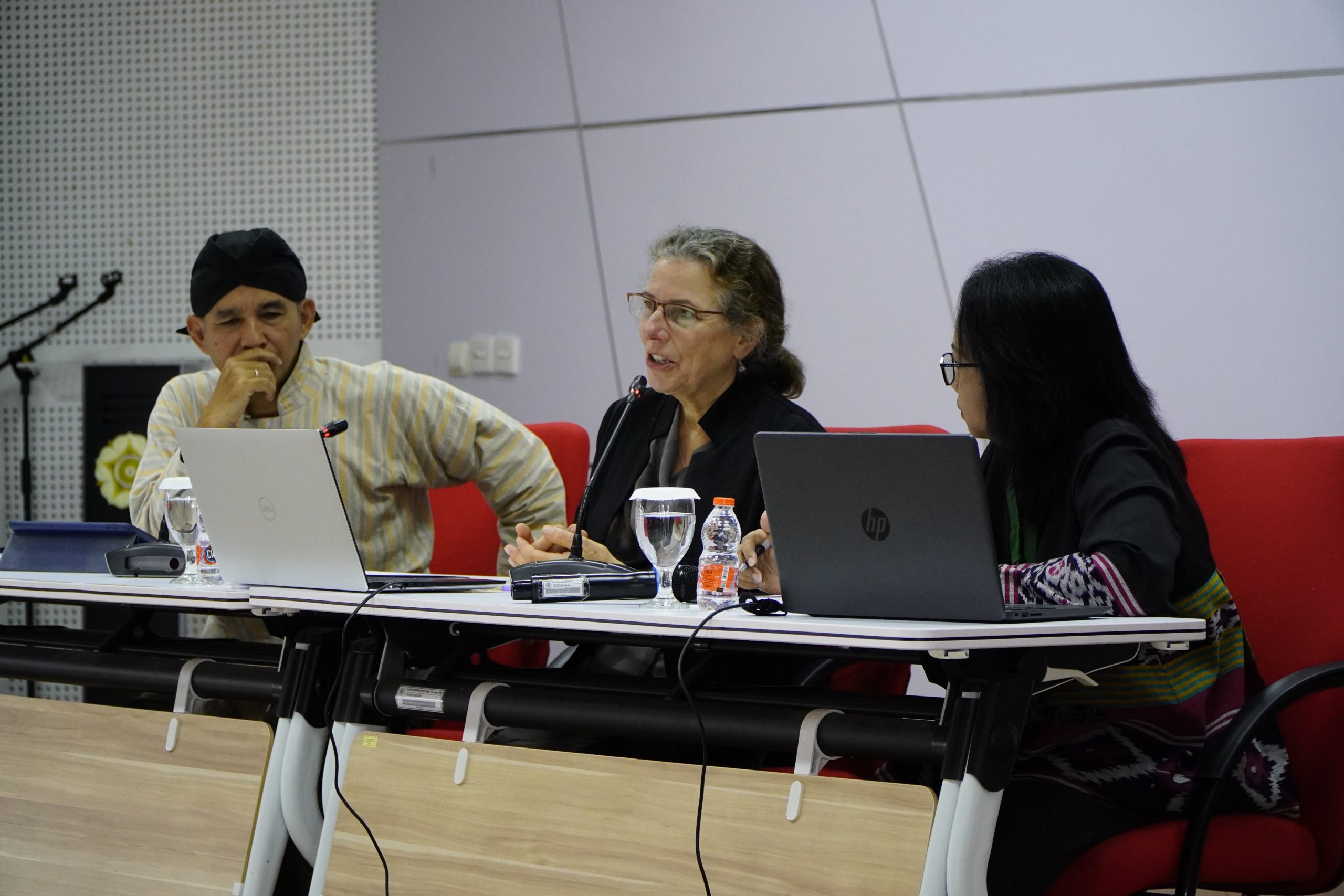
This activity is a form of concrete support for the achievement of the Sustainable Development Goals (SDGs). This collaboration specifically helps to achieve goal 4 (Quality Education) by ensuring inclusive and equitable quality education, and stimulating a spirit of lifelong learning. It also helps achieve goal 17 (Partnerships for the Goals) by enhancing effective public-private and civil society partnerships, building on experience and drawing on cooperative strategies.

